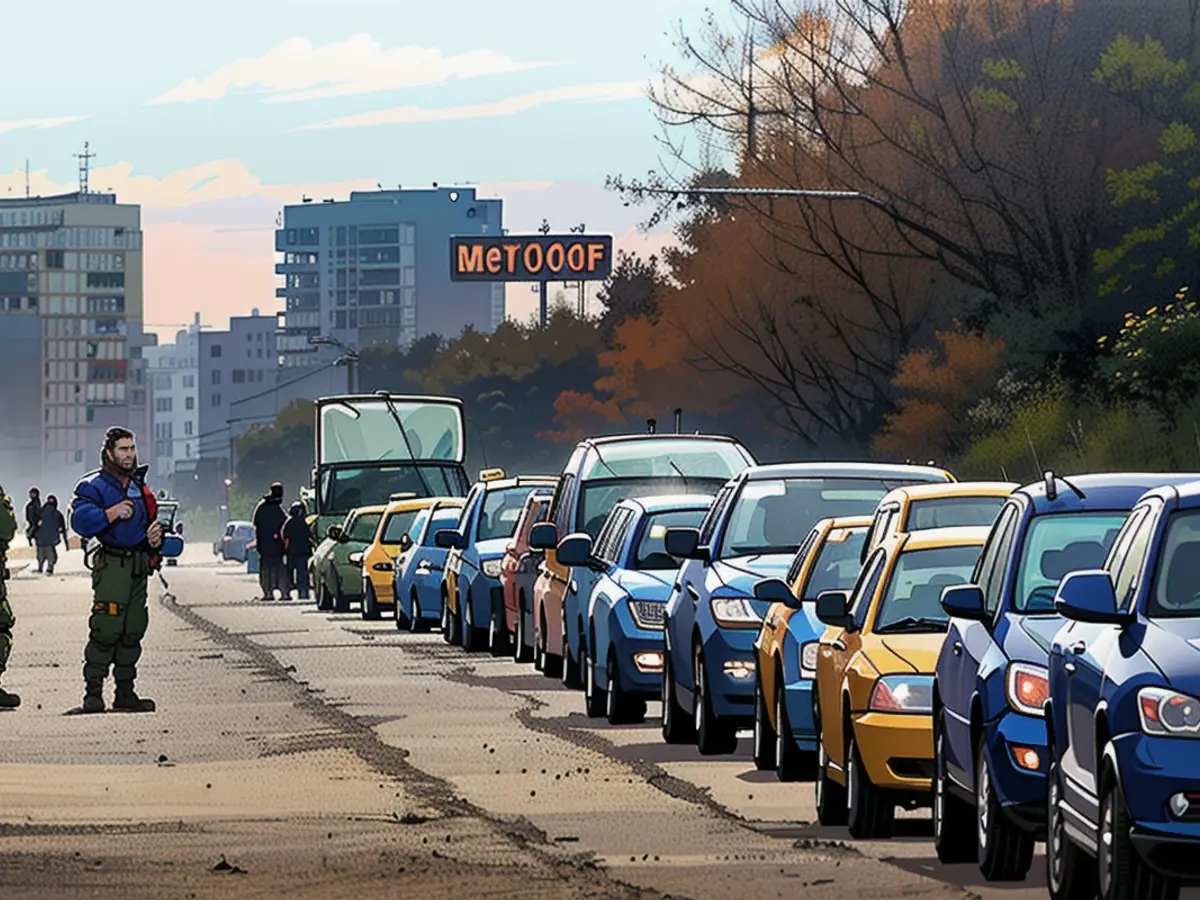Despite the continuous bombardment of rockets, we managed to arrive at our destination.
Daria Sajzewa hails from Mariupol, a city that succumbed to the Russians in May 2022 after brutal combat. Currently staying in Kryvyi Rih, she shares her experiences during the occupation with ntv.de. She remembers those days with dread.
ntv.de: You didn't hail from Mariupol initially. What was life before the extensive invasion?
Darja Sajzewa: I trace my roots to the town of Horliwka in the Donetsk region. When the Luhansk and Donetsk regions were annexed in 2014, my spouse and I settled in Mariupol. We both worked for DTEK, he as an engineer and me as a technician. We rented a house and I was pursuing an economics degree at Mariupol State University. We bought a property in Prymorsky District a month before the mega-invasion.
ntv.de: How did February 24, 2022 unfold for you?
Darja Sajzewa: I wasn't at work that day as I had to attend my classes. My husband woke me up and broke the news about the war. I told him it was a joke.
ntv.de: You weren't anticipating a war?
I had no clue, as I used to observe Azov soldiers on my way to work. They seemed strong and protective. Not until we turned on the TV did my husband and I realize that the invasion had indeed commenced from the Russian side.
ntv.de: What steps did you take?
We planned to refuel our car and withdraw cash. The queue outside the station was humongous by the time we arrived. It was around six in the morning. Suddenly, a massive explosion could be heard, possibly from a Ukrainian army checkpoint near the gas station. We decided to leave the area. We grabbed some supplies to eat and could still use cash at a supermarket that day.
ntv.de: How was life under Russian rule?
It was a total mess, with transportation either halted or overcrowded. People were unsure what to do and where to go.
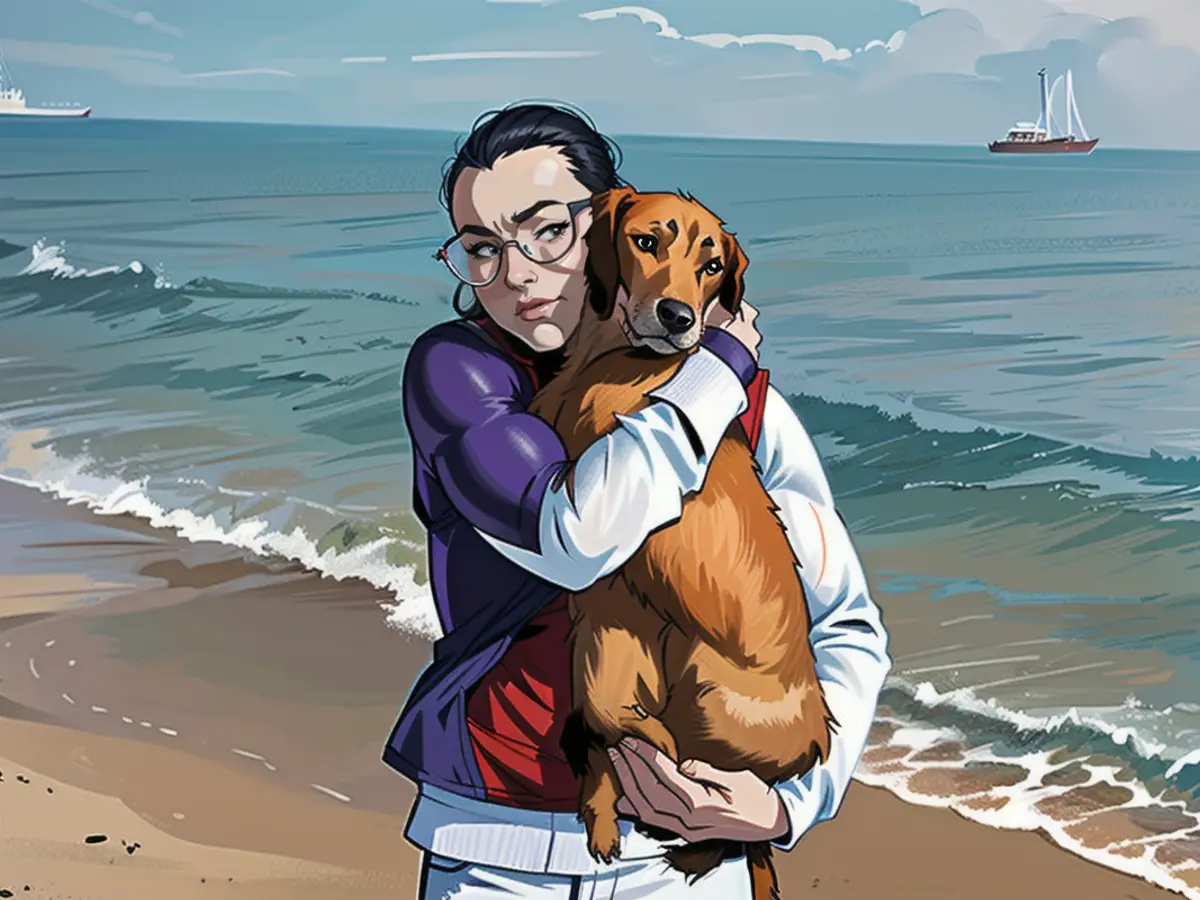
ntv.de: Did you spot any Russian soldiers in the city?
The Russians didn't enter the city for a while, but they shot at us from ships in the harbor. They also used aircraft. There might have been Russian infantry in other sectors, but I didn't witness it.
ntv.de: How did you spend your time?
We stayed indoors. Our neighborhood was burning, kept seeing planes and ships shooting. When peace seemed to have settled, we walked to my parents' house, about ten kilometers away. There was no water, electricity, or gas there. We gave them some meat, conversed, and assured them to return if something went awry.
ntv.de: How often did you visit them?
We returned on March 9, but found no water. Our neighbors provided us with petrol to drive. I witnessed a woman leaping from the eighth floor of a flaming building, hoping to save herself. I was deeply traumatized and decided to bring my parents with me. Fatefully, we'd have been unable to leave two days later.
ntv.de: Then, you decided to flee Mariupol.
The decision was spontaneous. I had a conversation with our military, who informed me about the safest escape route, and we left on March 21.
ntv.de: What route did you take?
We traveled with my husband, stepfather, mother, and mother-in-law, along with our two dogs, two cats, and a guinea pig. We headed to my parents' residence first, in Mangush, to refuel. Russian soldiers were firing upon us from all sides, from ships and planes. We made it through the commotion. We stayed in line for four days to buy fuel. Later, we continued our journey toward Berdyansk.
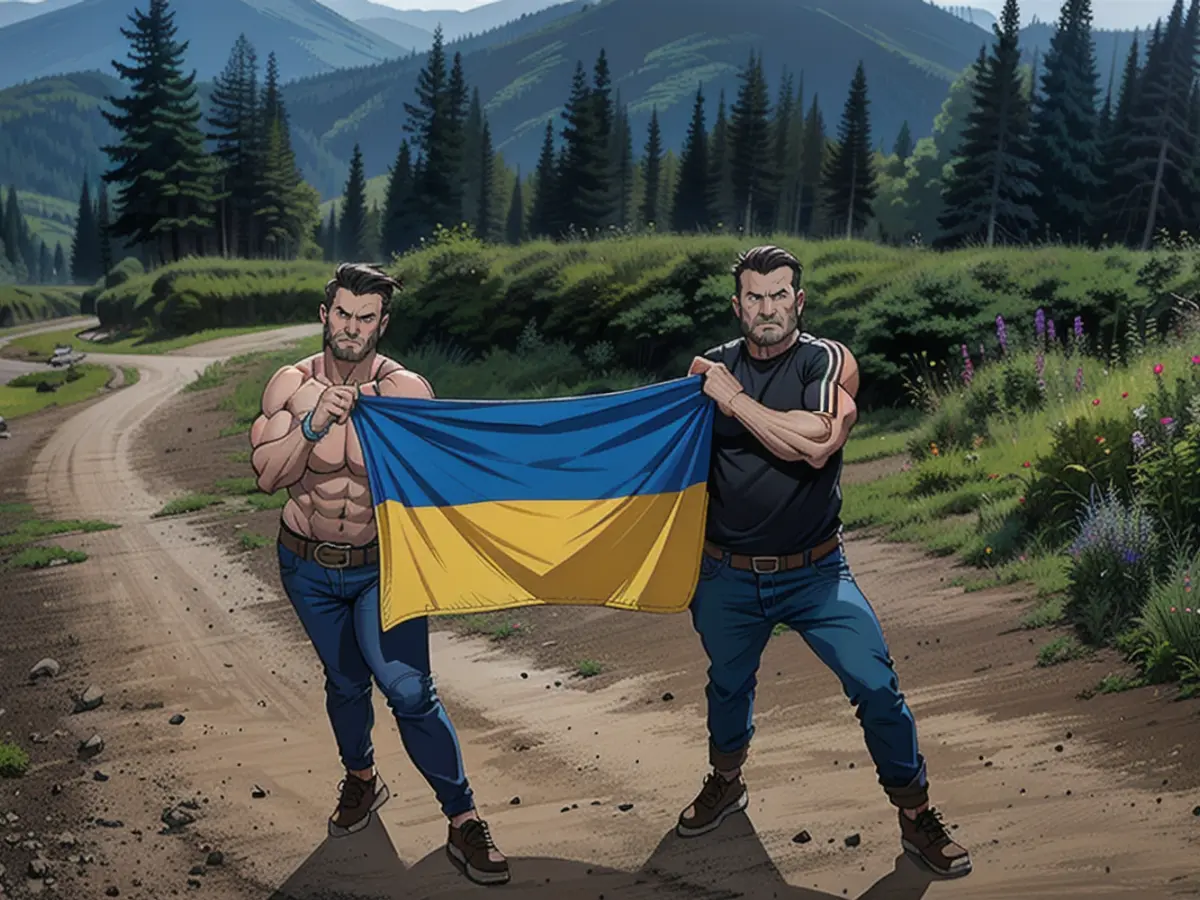
ntv.de: Were you questioned by the Russians?
Definitely! At numerous checkpoints, we merely stated we were heading toward Berdyansk since nothing remained in Mariupol. But realizing the lie wasn't working anymore, we confessed we were on our way to Zaporizhia, via Tokmak and Vasylivka.
ntv.de: How many checkpoints did you encounter?
There were 29 checkpoints connecting Mangush and Zaporizhia. Tokmak held our worst experience as pro-Russian men operated there and compelled almost all to strip down to undies. It was frigid and snowy.
ntv.de: What were they searching for?
Unknown. They were just observing everyone.
In search of tattoos and weapon markings to ensure they weren't soldiers, the soldiers inspected Maryna Bratchyk and her husband. They had an intention to seize his work shoes, which were of high quality but were too small for the occupiers. Fortunately, they decided against taking them. They were fortunate as the soldiers didn't confiscate their money or documents. Another friend of hers, who had fled two weeks later, had to undergo a lie detector test and didn't retrieve all her belongings.
What transpired when you reached Zaporizhia?
Ukrainian volunteers supplied you with food and hygiene products. Thankfully, you could clean your teeth and bathe after a month without having a shower. You rested there for the night before driving to a relative's residence in Apostolovo. Eventually, you opted to visit Krywyj Rih.
Are you fine?
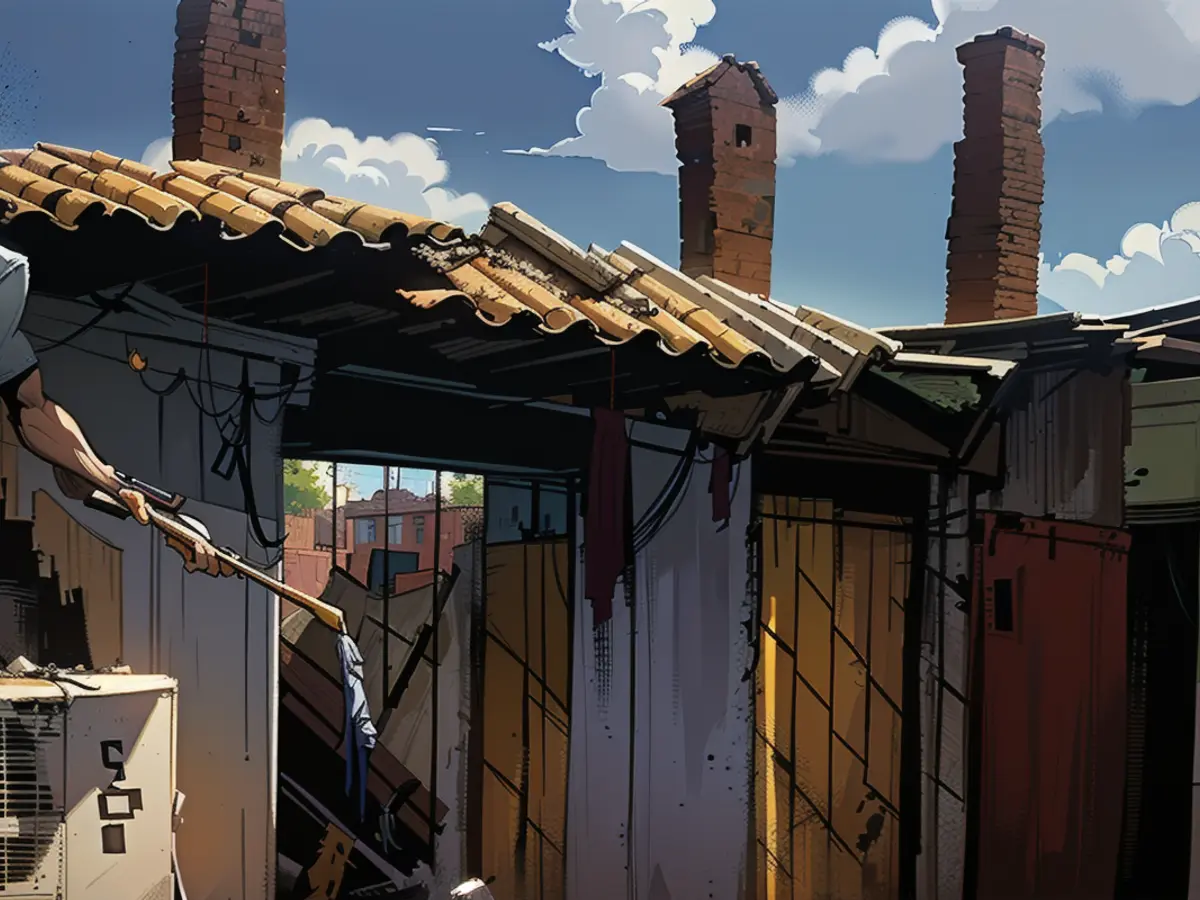
Yes, your husband continues to work for DTEK, retaining his previous position in Mariupol. You, on the other hand, haven't been reemployed.
Do you possess any family or friends in Mariupol?
Certainly, your godfather declined to leave. Currently, he administers your house. You communicate through Telegram twice monthly.
Do you learn about the ongoing conditions in Mariupol from him?
Indeed, he shares such information but in a devious manner. He understands the occupiers' predatory behavior, targeting both young girls and elderly women. They abide by no regulations.
What prompted you to remain in Ukraine rather than migrating to Europe or another country?
To be frank, I want to revisit Mariupol once it's under the Ukrainian flag. I also plan to travel to Europe after the war ends for a much-needed vacation. We're required here. For instance, I dispatched food and other essentials to the brigades where my acquaintances are serving, including homegrown cucumbers, tomatoes, homemade pizzas, and other delectables.
How do you manage to cope with everything you've endured?
During the initial months, it was challenging. Occasionally, I break down and cry, desiring to return home. If one remains absorbed in these thoughts constantly, one becomes unhinged. The soldiers motivate me. I'm overjoyed when they phone or write to tell me they're alive and express their gratitude.
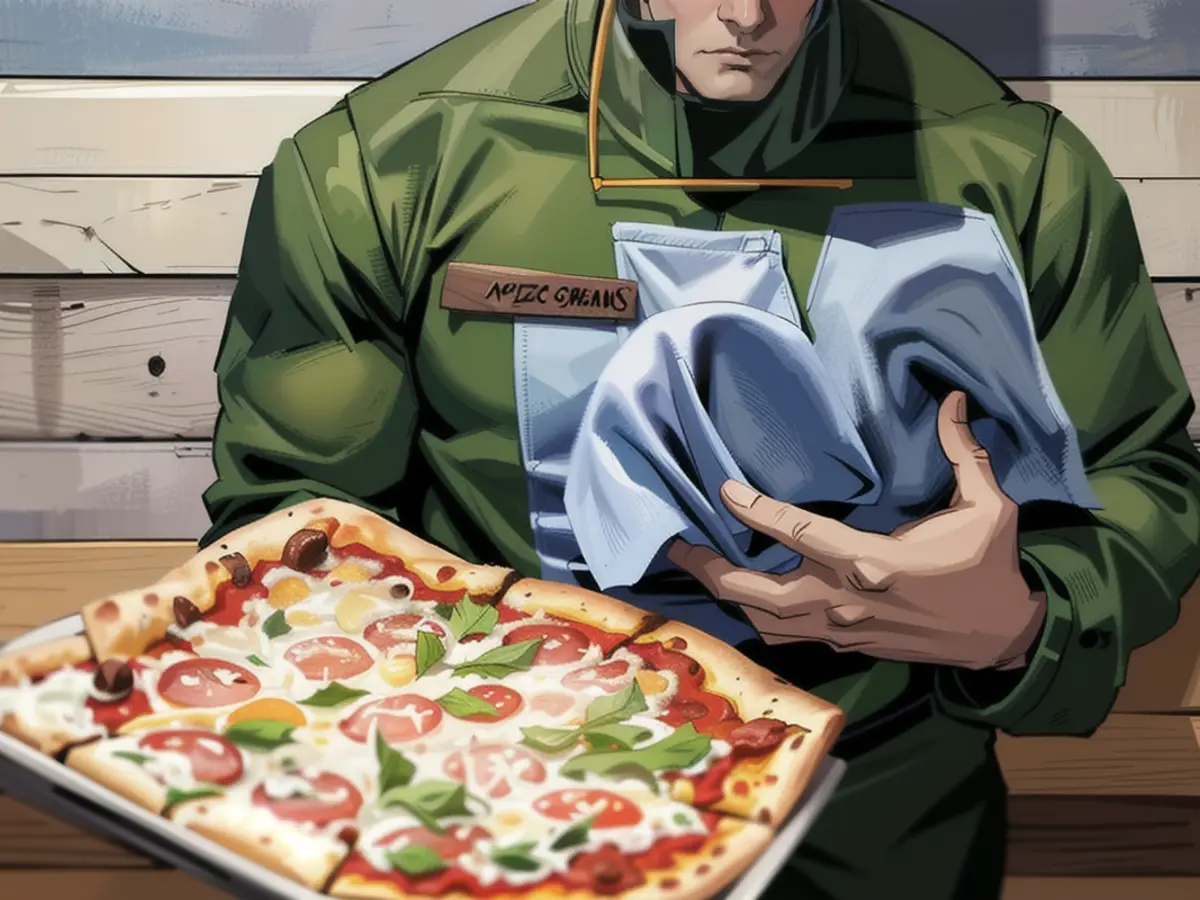
Read also:
- Year of climate records: extreme is the new normal
- Precautionary arrests show Islamist terror threat
- UN vote urges Israel to ceasefire
- SPD rules out budget resolution before the end of the year
Daria recounts experiencing the Russian invasion in Mariupol, which is located in the Azov Valley, stating that she had witnessed Azov soldiers in the city before the attack began. During the occupation, she and her family faced numerous challenges, including a lack of transportation and uncertain safety, especially with frequent shelling from Russian ships in the harbor.
Source: www.ntv.de
